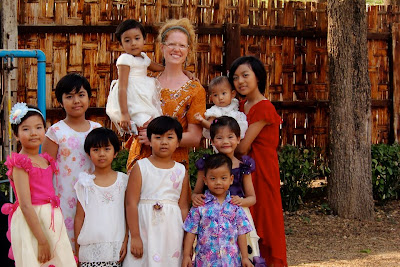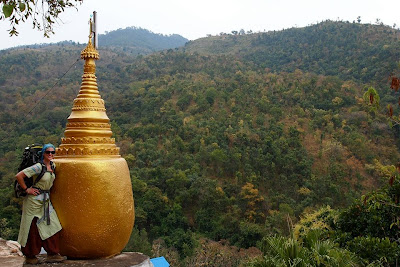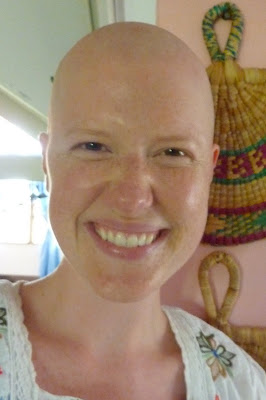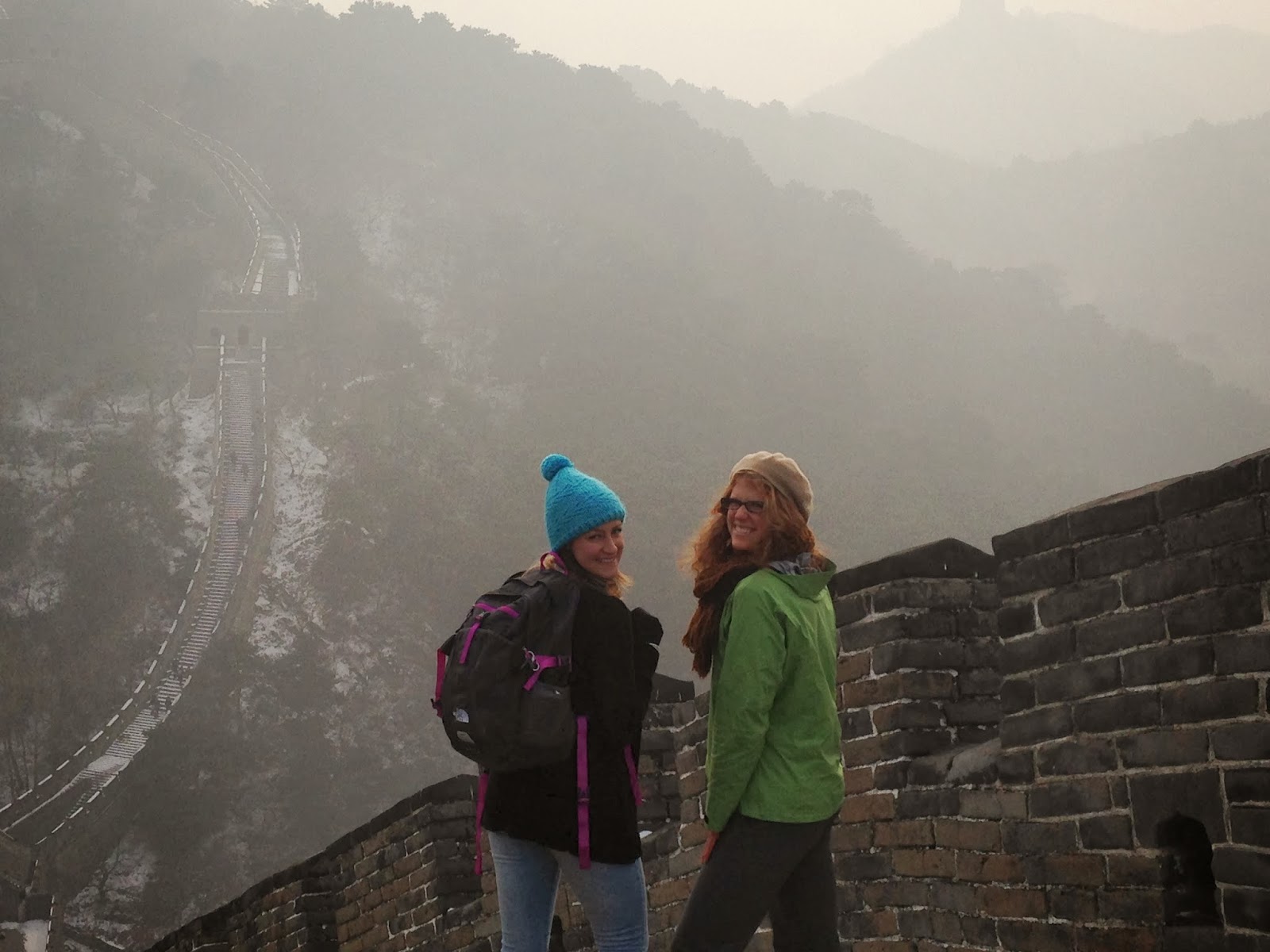28 Days in Myanmar
 |
| The children of the Bible school staff only liked me after I made a fish-lips face! |
In recent months, Myanmar has become much more open to the outside world. Within the last five months, the country has seen its first ATM machine, installed many wireless connections and expanded its economy to include goods from around the world. More significantly are the political progress and political opposition to the main power groups, semblance of democracy, open knowledge of government contracts with China and other trading partners and social exchange with incoming tourists and businessmen.
 |
| Shwedagon marketplace, outside the large pagoda |
Foreigners
are still prohibited from staying with the local population, but they are
welcomed on all sides to participate in tourism and business activities. Only
15 years ago, foreigners were given only 3 days to be in the country (before that
it was 24 hours and before that foreigners were completely restricted from
entering Myanmar). Now I am easily able to obtain a 28-day visa for tourism
purposes, and I felt free to gallivant as I please, as long as I did not stay
in one of the locals’ homes. (I even got around that rule, but it was under
extenuating circumstances.) Come along as I describe a little of my first
adventure in Myanmar. (I say “first” because I know that I will be back, at
least I hope, Lord willing.)
 |
| With my travel companion and some kids belonging to the owners of the home |
CouchSurfing has become my favorite way to find lodging
around the world. I took a chance seeing whether CouchSurfing was active in
Myanmar. Fortunately, I found a great host, who is teaching English literature
at a small international school in Yangon. I ended up staying with him a few
times throughout my stay, blessing my travels, as I passed through Yangon to
the rest of the country. I loved the frequent teahouses, sugar cane juice
machines and noodle stations all around the city. Golden edifices dotted the
cityscape, and I could not keep track of how many Buddhist monasteries were
present. It seemed like every corner housed a golden pagoda of a varying size.
 |
| Our room for the night |
With a fellow traveler whom I met at my CouchSurfing host’s
apartment, we traveled to the Andaman Sea, which surrounds the southern
coastline of Myanmar. We took a night ferry to Pyapon—one of the commercial
hubs in the delta—hoping to find a bus to take us to the sea. It so happened
that one of the passengers, sleeping in the same cabin as we were, was going to
a seaside village. We tagged along with our non-English speaking guide, hoping
that somehow we had understood the broken English correctly. The rickety bus
took us right to the beach and dropped us off. We had a tent and started
looking for a place to stake it. Motorbikes started following us, but the first
couple of men who stopped us did not speak English, so we continued on our way.
Finally, one man—a police officer from the village—showed up at the home where
we had settled in the shade of its trees and told us that we could not stake
our tent near the beach. It was dangerous; but more probably, it was simply
illegal for us to do so. In order to ensure that we followed the policeman’s
instructions, the group of police officers left some unlucky man to watch over
us and take us back when we were ready. We got a free motorbike ride back to
the village and the guesthouse where we stayed the night.
 |
| I almost made it to the Golden Rock pagoda, but it was under renovation. |
We went directly from the seaside, fishermen’s village to
Kyiatiyo, leaving the village at 5:30 am to take a bus to Pyapon, a ferry
across the river in Yangon, a public bus and a taxi to the main bus station on
the outskirts of town and a five-hour bus to Kyiatiyo. That is quite tiring
when you don’t know whether you are going to make your connection—or whether
there is a connection—and in the dreadful heat of the day. Thanks be to God, we
made it to Kinpun Base Camp, where we found a restaurant catering to the poor
pilgrim and dirty backpacker that offered a free place to stay on plastic mats.
Again, we did not need to use the tent we had brought. At 5 am, we left on the
roundtrip 12-mile hike to the Golden Rock pagoda. Culturally and naturally
beautiful, we hiked past myriad small villages, teahouses, mountains, bamboo
and Buddhist monastery and religious structures. Since the Golden Rock was
under renovation, there were very few western tourists. In fact, we had the
trail to ourselves (meaning it was the people of Myanmar and us), which made us
quite the attraction. We were stopped by several groups of young people, who
wanted to take their pictures with us!
 |
| Inle Lake at the floating gardens |
Parting ways with my travel companion, I made my way to Inle
Lake from Yangon. I hopped off the bus about 7 miles from Naungshwe (the door
to Inle Lake) and started walking, which was the intent of the seven days. On
my way, someone picked me up and drove me to the city. I was thankful because
it helped me to save my energy for the long walk to Maing Tauk. As I entered
the first village along Inle, a boatman approached me and asked whether I
wanted to see the lake. I negotiated a place to stay from the boatman, saying
that I would ride with him if he let me stay with him and his family. Although
he was a little wary because of the law, he allowed me to stay, and we had no
problems. After a lovely day out on the lake, where I saw floating gardens and
markets, Intha men and women, who paddled their boats with their legs, and
lotus weavers, I struck out into the mountains, traversing a well-worn
footpath. I ran out of water, so I made my way to the road and filled up my
water bottles at a nearby hotel. My intention was to use the remaining hour and
a half of light to find a place where I could lay my mat and sleep outdoors.
The foreboding and darkening clouds should have been a certain warning against
that plan, but I was too determined to sleep outside, so I ignored the signs of
the impending rainstorm.
 |
| Intha boatman, using his foot to row the boat |
As the raindrops started to fall, I told myself that it
would only be a sprinkle; I hid myself under an expansive tree to wait out the
mist. Mist turned into torrential downpour, and I started shaking my head in
self-loathing: this is what budget travel occasionally gets me—lonely and very,
very wet. I wish I had been able to video myself: I decided to make a run for
it with my big backpack (on top of which was strapped my purse), wearing baggy
pants, a dress and my hiking books. I ran through mud and on uneven surfaces,
almost face planting in the mud. As I ran, I said out loud to God, “I’m glad I
know how to run.” I made it to the shelter I had seen earlier after about five
to ten minutes. (I’m not sure how long it took because I did not think about
timing myself, only getting to a dry place out of the rain.)
 |
| Forest Monastery about one hour's walk from Inle Lake |
Thankfully, the shelter was dry, and as the rain continued
to deluge the fields, I changed clothes and did damage repair. I noticed a
group of people looking my way, which I had seen earlier building a hotel. Once
the rain lifted, the curious onlookers came to greet me and find out why a
westerner was drenched and waiting in a bamboo shelter. No one spoke English,
but their manager arrived shortly after to inquire after my circumstances. I
told him that I was going to spend the night in the shelter, and he told me it
was not safe. Back and forth we went until he told me that he would allow me to
stay with the workers in their barracks. I knew this was illegal; plus, he had
told me that he had informed his superiors of my presence. I figured that it
was unlikely that I would stay, but I did not see what alternative they would
give me. The women and my English-speaking friend fed me a lot of food; I could
not refuse because that was the only language we could all speak—the one of
love and hospitality. All of a sudden men from immigration showed up and asked
me about what had happened. They had driven from the main town, about 25 minutes
away, to come and collect me to take me to a hotel. I smiled and laughed and
charmed the men into seeing my perspective, so they were very genial as they
took me to the monastery in Naungshwe. (It only cost about 6 dollars, so it was
still in my budget.) The men followed me into the monastery and made sure I was
safely checked into the facility before leaving. They were very kind and
concerned for my well-being. I apologized for the problem and bid them
goodnight—a day in the life of this redhead!
 |
| U-Bein's teak wood bridge---about 250 years old, in Amarapura, outside of Mandalay |
When my sopping shoes had dried, I left for the mountains.
To see Inle Lake without a trip into the surrounding mountains would have been
a shame. I was thankful to have the time to trek into the craggy hills to see
the lake from their towering perspective. I had a simple map and a plan to
sleep in whatever village would welcome me. One night, I stayed with two young
female teachers, who welcomed me into their cottage. I had taken the wrong
turn, I prayed for a motorbike to come and assist me. Two young guys showed up;
and although they did not speak English, they were happy to help me and gave me
a ride to their village. It was kind of late and I was hungry, so I asked my
motorbike friends whether I could get something to eat. The boy who had driven
me took me to his home and cooked for me! He cut up a potato, washed the
necessary pots and fried it for my dinner. I was stupefied by this 18-year-old
boy’s willingness to cook for a stranger. He invited two of the local teachers
over, who helped him to entertain me, as they knew some English. I asked if I
could stay in the village, and the girls were thrilled to welcome me into their
home, to cook for me and to practice their limited English.
 |
| Become-a-monk-for-a-week parade, complete with golden ox carts |
The next day, I finished a hearty breakfast before leaving,
and my hosts insisted on giving me snacks to take along for the walk. When I
refused, they snuck the snacks into my bag anyway. (I found them later while
searching for something in my bag; I smiled.) The walk was pleasant and full of
images of bucolic mountain scenery and shy, little towns. I loved the villages
and the remoteness of paths I was taking. Inle Lake was not as far as I had
imagined, and I ended up at some of the lakeside villages mid-afternoon.
Although I tried to stay with one of the families in the villages, they were
too close to the tourist areas to consider hosting a westerner against the law.
With the help of one of the people I met, I was led back into the mountains,
down a shortcut to a distant village where I could spend the night. My Pa-O
host spoke a little English and was a very generous cook, even preparing dinner
for me when she and her family had already eaten. Blankets from my host were
appreciated as the coolness of the mountain evenings chilled me thoroughly. She
had worked with a hotel cooperative at Inle Lake, and when I arrived, she
called her friend and former manager to inform him of my presence. Graciously,
they let me stay in the village, knowing that it was late and that I was
probably lost. The next morning, my host’s friend showed up at her home to talk
to me and to assist me in getting to my destination. I was amazed that he had
taken the time to come and see me to ensure that I found my way. Later that
morning, he and I met again on the road, and he helped me get back to Naungshwe
where I started another hike to Kalaw. God always provided me with the help I
needed, even in unlikely places.
My hike in the mountains around Inle was so pleasant that I
wanted to continue to walk, even attempting to walk to my next destination
about 25 miles away. I failed miserably without a guide, but I did stay in a
beautiful village of the Dan-U people, another people group found around Inle
Lake. This is the humor of my travel experiences: I arrived in the village at
dusk. (I had no idea whether I would find a village when I struck out down the
path because I had no map, but I succeeded in finding a place to spend the
night.) Since the village was very far from any town, I knew I would have no
trouble finding someone to host me. The first people I saw took me to the
village school where the teachers were living. I was served coffee and a small
cake as they decided what to do with me. All of a sudden, a familiar face
appeared in the group of chattering people. It was the same immigration officer
who had earlier escorted me from the labor camp back to Naungshwe. He said, “Do
you remember me?” I replied that of course I remembered him and found it
hilarious that we should meet again. I said that I keep getting lost! He was
conducting a demographic and cartographic survey of the area, and the village I
found was the center of the survey. We laughed together, and I knew that
everything would be okay. He requested from his superior the permission for my
stay at the teacher’s home, which his superior thankfully granted to me.
 |
| Kalaw mountain town |
After wandering around by myself for three days without a
map, I was ready to complete my excursion. When the path I had taken took me to
the road, I took it as a sign from God to get on a bus to my next destination.
I had experienced enough adventure and wanted to prepare myself for Mandalay
and the time at the Bible school—my main reason for going to Myanmar. I
recovered at a simple yet clean guesthouse in Kalaw (a main tourist destination
for trekking in the mountains) before heading to Mandalay, located at the
center of the country.
 |
| Mandalay Palace at sunset |
For 12 years, my friends have been operating a Bible school
on what used to be the outskirts of Mandalay but what has now become an
overflow of the central district of the city. Through hard times of persecution
and political uncertainty, my friends have been serving the Lord Jesus
faithfully in their ministry to train up people from all over Myanmar, even to
the farthest-reaching places, to bring the Gospel to Myanmar and the rest of
the world. I was so blessed to have the opportunity to see the fruit of their
labor and the fruit of the McCartys’ labor (my spiritual mentors who brought me
to the Bible school in the Philippines) after many years of trials and
successes. The school emphasizes biblical studies, but it is also a music
school and has opened its doors to people in the community to teach music, even
training monks and other Buddhist young people.
 |
| With the students and some staff of the Bible school |
I was warmly welcomed and had the opportunity to teach the
students and discuss cultural differences between the U.S. and Myanmar. I made
them ask me questions, which was a challenge for some of them and entertaining
for others. I also had the chance to teach at their church and share about my
life’s journey with the people in that church community. Although it was a
challenge to communicate with the students, I saw their passion to serve God
through their relationship with Jesus Christ and heard a lot about their homes
in some of the distant parts of Myanmar. Of course I immediately began to think
of how I would journey one day to those faraway places to take the Gospel.
 |
| Happy Family Bible Training Center staff and me before graduation |
While I was at the Bible school, I had the pleasure of
seeing the building dedication and meeting some of the main supporters of the
work at the school. Seeing the staff, the spiritual directors and mentors (the
McCartys) and some of the main supporters was a lovely picture of continuity
and perseverance and blessed me immensely. Love and delight were heartily
expressed through the music, the benedictions and hope for the future. I was
there at the right time. As Myanmar opens up politically and economically, it
continues to open up for the gospel of Jesus Christ. I’m enthralled to be a
part of that nation and to have dear friends who are such loving examples of
disciples of Jesus Christ. I look forward to my next trip to Myanmar.



Comments